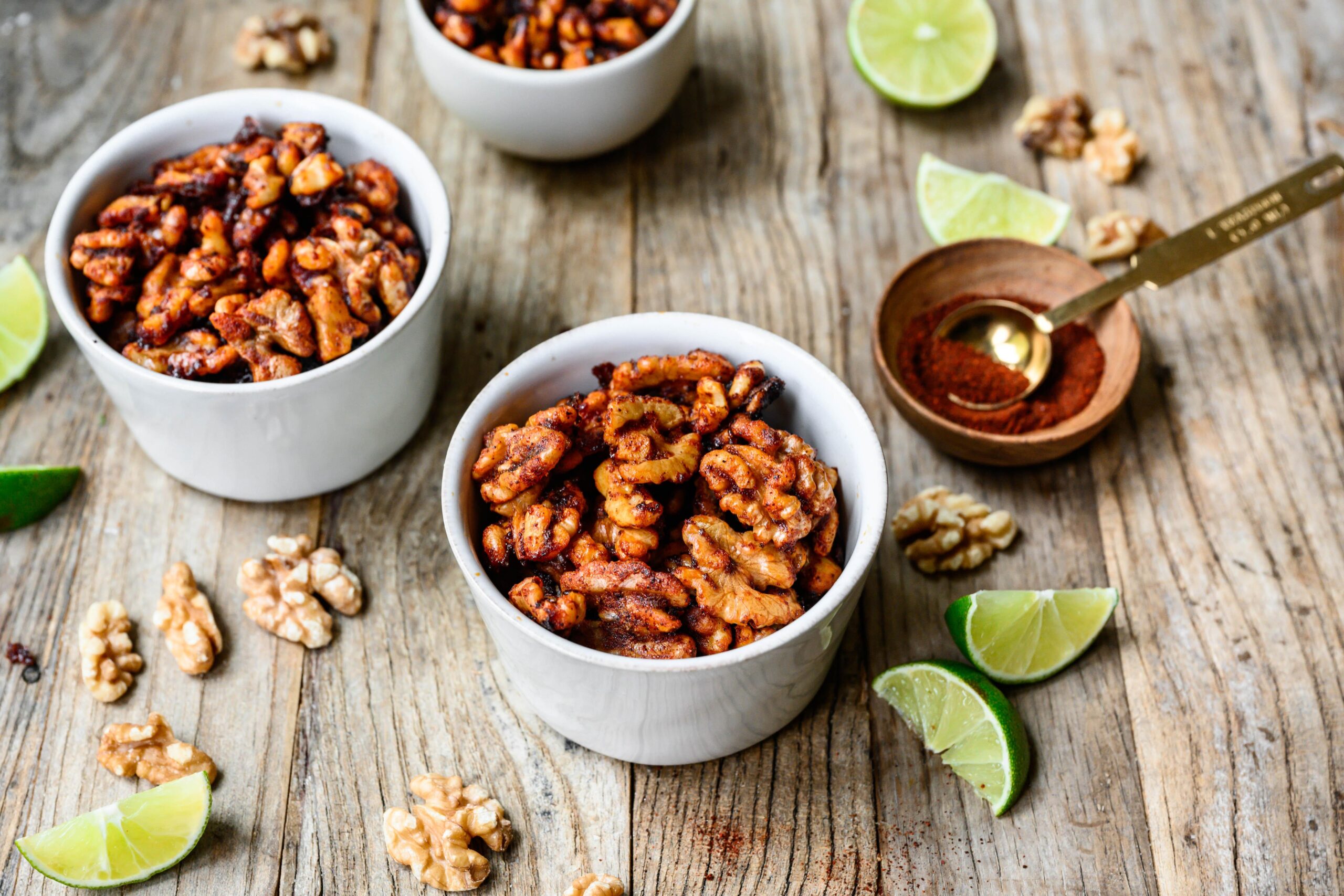
Busting 6 common Myths about Walnuts. Walnuts are an effective superfood that contributes many beneficial nutrients to the diet to support the heart, brain, and gut. Their unique nutrient profile makes them stand out among nuts as they mostly contain good, polyunsaturated fats (13g/28g). However, despite offering phenomenal health benefits, there are myths and misconceptions about walnuts that have perpetuated over time. Naaznin Husein, Founder of Freedom Wellness Management and an eminent Dietitian, dispels 6 most common myths about walnuts and separates facts from fiction.
Busting 6 Common Myths About Walnuts are
MYTH 1: Consuming 1-2 walnuts is enough for the day
Busting 6 common Myths about Walnuts It is advised to consume at least seven walnuts (12-14 halves) which equals to a handful or 28 grams in order to derive maximum benefits from this superfood. A handful of walnuts provide combination of key nutrients including 2.5 grams of alpha-linolenic acid (ALA) – the plant-based form of omega-3, which is more than five times the amount found in the next highest nut along with four grams of protein and two grams of fibre. While some people prefer to kick off their mornings with walnuts, you can eat them any time of the day.Apart from being a dynamic nut packed with nutrients and health benefits, walnuts also elevate the taste and texture of your dishes.
MYTH 2: Walnuts should not be consumed in summer
Walnuts must be consumed all year round for those essential omega-3 fatty acids and healthy mix of vitamins and minerals. Including these golden delights in your daily diet may help you stay fuelled, focused and energized. So, next time you want to overcome the 4 PM energy dive on a hot summer day, reach out for walnuts. While walnuts are satisfying and delightful on their own, you can pair them with seasonal foods to make your meals more wholesome. For healthy summer meals replace the croutons in the salad with walnuts, add walnuts to your smoothies, sprinkle on yogurt, cereal, pancakes and top your ice-cream or any fresh fruit with walnuts for refreshing summer dessert.
MYTH 3: Soaked walnuts are better than raw walnuts
Busting 6 common Myths about Walnuts. Myth 3 tells Many people in India believe consuming soaked walnuts are more beneficial than raw walnuts. Not true. If you soak the walnuts you must also drink the water to get as part of the nutrients end up in the water. Simply have them raw, roasted, or ground them in your meals, the nutrient profile of walnuts stays the same.
MYTH 4: Walnuts are fattening and cause weight gain
There is no negative effect of walnuts on body weight and body composition. Walnuts may in fact play a role in achieving ideal body weight, when consumed as part of an overall healthy diet. Regular consumption of walnuts is extremely healthy as they are packed with nutrients and antioxidants. Rich in heart-healthy unsaturated fats, walnuts may promote satiety and help in appetite control- key components in maintaining a healthy weight.
MYTH 5: Walnuts get rancid too soon
With the right storage, you can maintain the fresh taste and quality of walnuts for up to one year. Walnuts are rich in healthy fats and go rancid when exposed to warm temperatures for long period of time. For optimum freshness, store walnuts in your refrigerator in an airtight container if you plan to use them within a month. If you’ll be storing them for a month or longer, store them in your freezer. When storing walnuts, keep them away from foods with strong odours as they can absorb the flavors of other foods. Follow these storage tips to enjoy fresh tasting walnuts all year long.
Myth 6- Consumption of walnuts can lead to rise in cholesterol levels
Walnuts may actually help in lowering harmful LDL cholesterol and raising beneficial HDL cholesterol levels. Research has found that omega-3 fatty acids found in foods such as walnuts may decrease the inflammatory marker C-reactive protein (CRP) in those with high cholesterol. Walnuts may also be beneficial in decreasing blood pressure and regulating blood glucose levels. Eating walnuts as part of a healthy diet may decrease your risk of both heart disease and stroke.
So, eat walnuts guilt-free every day. Simply have them raw, sprinkle on your salads or add in your favorite recipes to make them a part of your daily diet for optimum health.
Visit for buying Walnuts:https://californiawalnuts.in/



